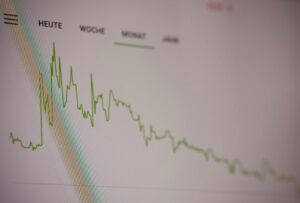In the present interconnected realm, the global economy assumes a momentous role in shaping nations, enterprises, and individuals. It wields influence over international trade, finance, and overall development.
Grasping the inner workings of the global economy and its controllers becomes indispensable for anyone aiming to navigate the intricacies of the international trade and finance landscape. Let us delve into the depths of the global economy and unravel the fundamental components intertwined with it.
Table of Contents
What is a global economy?
The global economy encompasses the intricate interdependence of economies worldwide. It is a dynamic system wherein the exchange of goods, services, capital, and information transcends national boundaries, fostering connections on a global scale. This economic framework facilitates the movement of wealth and resources, encompassing people, skills, and innovative ideas across international borders.
The global economy thrives on the foundation of trade, which empowers countries across the globe to acquire any desired resource, regardless of its origin. In this interconnected world economy, nations engage in trade and financial endeavors to stimulate economic growth and enhance the standard of living.
The mechanics of the global economy
The functioning of the global economy relies on a complex web of interactions between various elements. These elements include international trade, foreign direct investment, currency exchange rates, financial markets, and global supply chains. Let’s delve into each of these components:
1. International trade
International trade entails the exchange of goods and services between nations. Countries specialize in the production of specific goods or services and engage in trade to acquire commodities that may be lacking domestically. The facilitation of this trade is accomplished through bilateral agreements, regional trade blocs, and international institutions such as the World Trade Organization (WTO).
2. Foreign Direct Investment (FDI)
Foreign direct investment materializes when entities or individuals from one country invest in business enterprises located in another nation. FDI serves to stimulate economic growth, facilitate the transfer of technology, and foster job creation. Multinational corporations play a pivotal role in FDI, establishing subsidiaries or injecting capital into existing enterprises within foreign markets.
3. Currency exchange rates
Currency exchange rates ascertain the value of one currency in relation to another. These rates fluctuate based on factors such as interest rates, inflation, geopolitical events, and market sentiments. Exchange rates wield influence over international trade, investment flows, and the competitiveness of domestic industries.
4. Financial markets
Financial markets provide a platform for the buying and selling of diverse financial instruments, including stocks, bonds, currencies, and derivatives. These markets facilitate the allocation of capital, investment activities, and risk management on a global scale. Prominent financial hubs such as Wall Street, London, and Tokyo assume pivotal roles within the global financial landscape.
5. Global supply chains
Global supply chains encompass intricate networks that interconnect suppliers, manufacturers, distributors, and retailers spanning different countries. These networks facilitate the efficient production and distribution of goods across the globe. The complexity of supply chains has grown significantly, propelled by globalization and advancements in transportation and communication technologies.
Key actors in controlling of the global economy
The global economy operates as an intricate system devoid of a singular controlling entity. Instead, it functions through intricate interactions among diverse stakeholders. Governments, multinational corporations, and international organizations exert influence through the implementation of policies, regulations, and negotiations. Financial markets and global supply chains also wield substantial power in shaping economic outcomes.
Let us delve into the key players who wield influence and shape the global economy:
1. Governments and central banks
Governments craft economic policies, regulations, and trade agreements that impact their countries’ participation in the global arena. Central banks manage monetary policy, regulate interest rates, and intervene in currency markets to stabilize their respective economies.
2. Multinational Corporations (MNCs)
Multinational corporations operate across multiple countries, leveraging their global presence to expand markets, source inputs, and optimize production. They assume a crucial role in international trade, investment, and technology transfer.
3. International organizations
International organizations such as the International Monetary Fund (IMF), World Bank, and World Trade Organization (WTO) foster global economic cooperation, promote financial stability, and advocate for trade liberalization. These organizations serve as platforms for negotiations, provide technical assistance, and facilitate policy coordination among nations.
4. Financial institutions
Banks, investment firms, and insurance companies comprise the financial sector, which plays a pivotal role in mobilizing and allocating capital on a global scale. They facilitate lending, investment activities, risk management, and financial transactions.
5. Consumers and individuals
Consumers, as the ultimate beneficiaries of economic activities, exert influence on the global economy through their consumption patterns. Individual entrepreneurs and innovators also contribute to economic growth and advancements in technology.
The effects of the global economy
The global economy has profound effects on nations, businesses, and individuals. Some of the key effects include:
- Economic interdependence: Nations rely on each other for resources, markets, and investment, creating interdependence among economies;
- Globalization: The global economy has facilitated the integration of markets and cultures, enabling the exchange of ideas, technology, and products worldwide;
- Income inequality: The global economy can exacerbate income disparities between countries and within societies, affecting wealth distribution;
- Economic volatility: Occurrences in a particular region can send reverberations throughout the global economy, triggering financial crises and downturns.
Read more: Everything you need to know about market economy: the pros and cons





